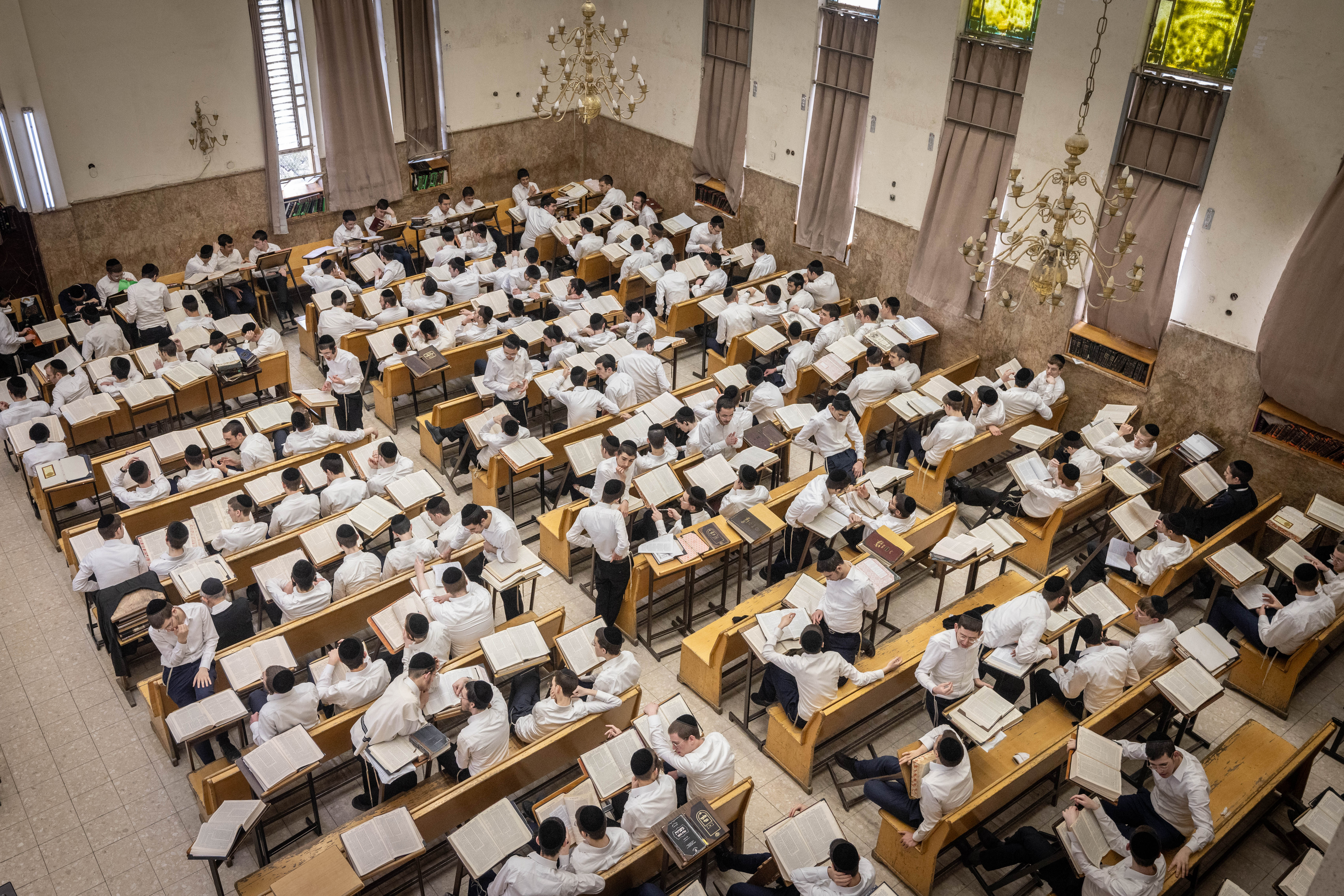IDI Analysis: 7.3% Surge in Yeshiva and Kollel Students
Yohanan Plesner, president of IDI and head of the 2012 Plesner committee which sought to implement a model of "service for all," and Dr. Gilad Malach, head of the ultra-Orthodox program at IDI, share their analysis of the rapid increase in the number of yeshiva and kollel students over the past year.

Ponovitz Yeshiva in Bnei Brak Photo by Chaim Goldberg/Flash90
According to an analysis by Dr. Gilad Malach, Head of IDI's Ultra-Orthodox in Israel Program, 2023 saw a dramatic 7.3% surge in the number of yeshiva (unmarried men) and kollel (married men) students in Israel, reaching a total of 167,500 students, a 53% jump since 2012. In 2023, there was a significant 6.3% increase in the number of yeshiva students crossing the 50,000 threshold for the first time, reaching 52,058. Additionally, there was an even more dramatic 8.6% increase in the number of kollel students, which now stands at 110,333. This increase is particularly striking given that in 2021, under the previous government, the growth in the number of yeshiva and kollel students stood at 2.5%.
Dr. Malach explained that "this is the most rapid increase in the number of kollel students since 2015, when the Haredim joined the coalition and significantly raised the budget for kollels. Similarly, in 2023, with the return of Haredi parties to the coalition, the budget for yeshivas and kollels increased by approximately 50%, resulting in a rapid growth in the number of kollel students. The sharp rise in the numbers of yeshiva and kollel students stands in stark contrast to the growing need to increase the number of Haredi men serving in the IDF. It would, therefore, be appropriate for a new conscription law to condition budgeting for Haredi yeshivas on a significant rate of enlistment of Haredim to the IDF, and in the absence of such enlistment, state funding should be withdrawn."
According to IDI President Yohanan Plesner: "With each passing day, it becomes increasingly clear that we need a new reality in Israel. The number of Kollel students is skyrocketing; meanwhile Israel's security burden is growing, and extended service is required from populations that are already bearing the brunt of security and economic concerns. Any law passed by Knesset must take into account the outcry from the serving public and include a system that would enforce recruitment based on economic incentives and disqualify state budget entitlements for those who refuse to serve. It is time for a new, more just social contract in Israel."
